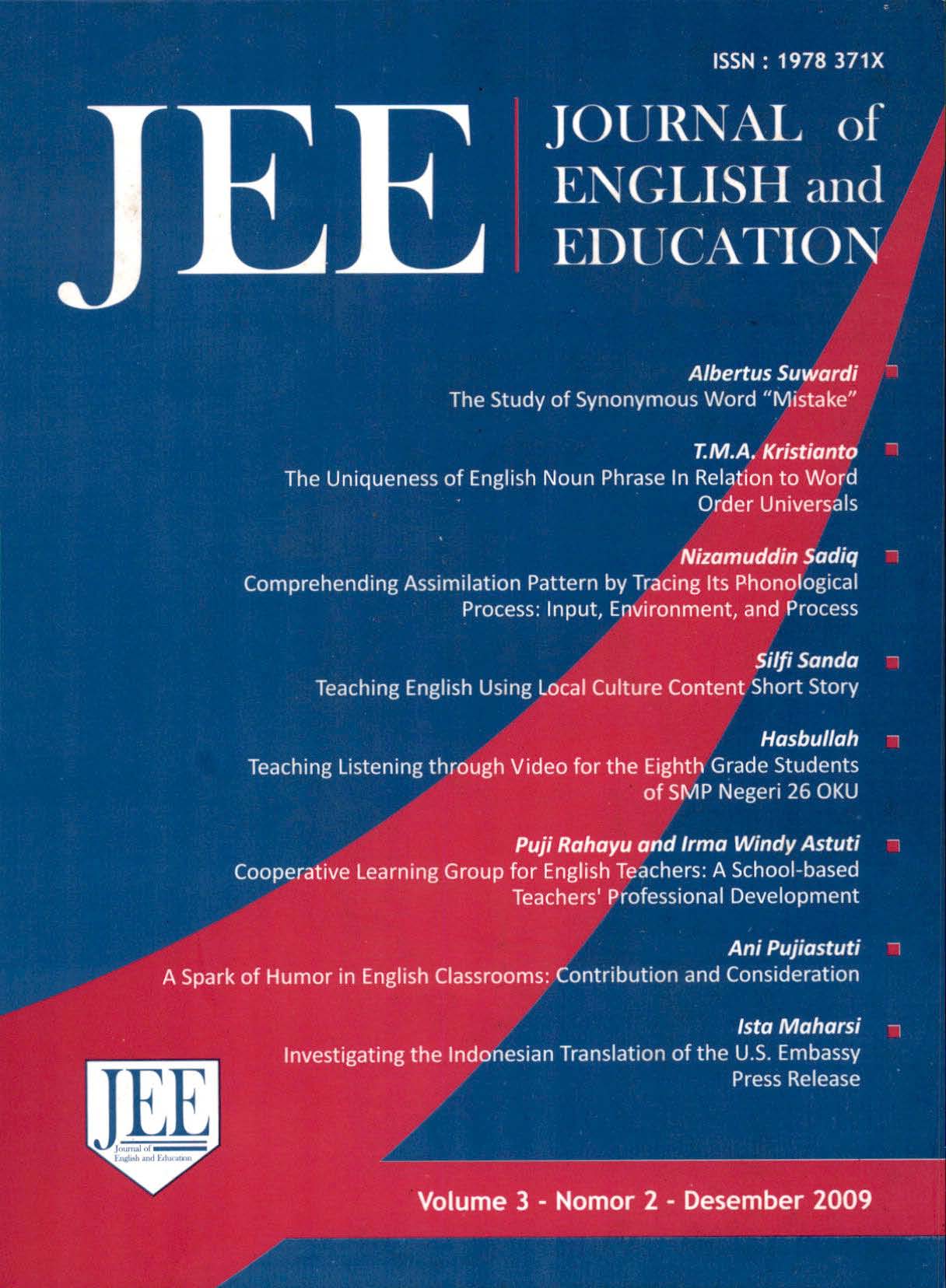Main Article Content
Abstract
The process of civil servant teacher's recruitment makes a school to possibly have both, or either, qualified and under qualified English teachers. The former can observe their job as teachers well while the later might not. The case is worse when they are not only incapable of teaching well but also still need help in their English proficiency. Asking them to take an English class is almost impossible. There must be ways of developing then professionalism while they are performing their tasks as teachers.
Building a cooperative learning group for English teachers will improve their professionalism, both the qualified and under qualified ones, with its very slogan "sink and swim together". Each group will be responsible for the improvement of all members because their success is determined by the success of the group and the group also determines the success of the individual. Being in this group, qualified teachers can help their friends with their experiences while those who are not lucky in terms of both English and teaching skills will benefit from them without feeling underestimated due to the individual accountability characteristic of cooperative learning.
In the group, teachers can do various professional development activities. They can build a discussion group, a reading group, peer observation and team teaching, and conduct a collaborative action research. This group will work better if the head master or a coordinator keeps an eye on it. This movement will also be much more effective if it is used as one of the criteria of kenaikan pangkat.
Keywords
Article Details
Copyright (c) 2016 JEE, Journal of English and Education

This work is licensed under a Creative Commons Attribution-ShareAlike 4.0 International License.
Authors who publish with this journal agree to the following terms:
- Authors retain copyright and grant the journal right of first publication with the work simultaneously licensed under a Creative Commons Attribution-ShareAlike 4.0 International License that allows others to share the work with an acknowledgment of the work's authorship and initial publication in this journal.
- Authors are able to enter into separate, additional contractual arrangements for the non-exclusive distribution of the journal's published version of the work (e.g., post it to an institutional repository or publish it in a book), with an acknowledgment of its initial publication in this journal.
- Authors are permitted and encouraged to post their work online (e.g., in institutional repositories or on their website) prior to and during the submission process, as it can lead to productive exchanges, as well as earlier and greater citation of published work (See The Effect of Open Access).

